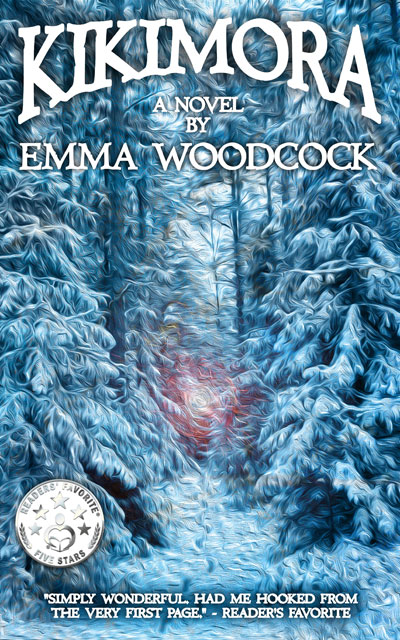Recently a friend of my mum’s asked me for some advice on self-publishing his book. Some time around bashing out the tenth paragraph of my email and suggesting we should perhaps meet up to discuss it all in more detail, I realised I have quite a lot to say on the matter.
I’m not going to tell you to run a spell-checker, or do a thorough proof-read. That’s pretty obvious, right? But here are some of the less obvious things I have learned through four years and two novels worth of self publishing.
Embed from Getty Images
1) Set Your Expectations
The first – and rather brutal – thing to acknowledge, is that no one cares about your book except you. I know, I know, you’ve spent the past ten years labouring over your magnum opus, and it’s precious and delicate and magical as a new born baby, and if you ever thought about it at all, you probably figured something along the lines of, “Build it and they will come,” right?
Unfortunately, that is not the case. In my experience, they will only come if you drag them kicking and screaming, and maybe leave them a breadcrumb trail of freebies, blog tours and guest posts.
Most of the books you sell – whether paperbacks or ebooks – are likely to be to people you know.
The paperbacks I’ve sold are mostly either to people I know or via stalls at fairs/festivals. Ie, in person rather than via shops (online or brick). Very few people are willing to take a punt on a self published book by someone they don’t know – even if the ebook is £1. Even if it’s free! They certainly won’t fork out £8 on a paperback without a lot of persuasion.
You may be thinking, “But paperbacks are cheap! I rarely pay more than £3.99 for a paperback from Amazon.”
Mass produced paperbacks are – or can be – cheap. Your self-published run of 50 or 100 is not. By the time you’ve recouped your manufacturing and handling fees and allowed yourself a couple of quid profit/remuneration for the years of hard work you’ve put into your book, you’re unlikely to be selling a paperback for less than £8 (though obviously this depends on the length of the book and what publishing package you use).
You may have more luck expanding your audience with ebooks. The major advantages are:
- customers can try before they buy with a free sample
- ebooks have no production costs, so can be sold far cheaper for the same – or greater – profit
- there are no postage costs
- they can even be returned if they turn out to be drivel, making people more likely to take a chance.
The disadvantage is that ebooks are very easy to forget about. I am a kindle owner. I read quite a lot of ebooks – but not half as many as I download samples of. Most of the samples I download I never even open. Why? Usually I forget all about it immediately. By the time I get around to noticing that new book on my shelf I’ve forgotten what it was or where it came from or why I thought it might be interesting. I’m also very busy. When I finally have time to sit down and read I often have a clear idea of what I want to read next, and don’t feel like giving some unknown thing of dubious provenance a chance.
Conclusion: do a print and ebook version, but be aware of their respective markets.
2) Have a Marketing Plan
I read this exact piece of advice prior to publishing Darklands. “A what??” I thought. I’m a web designer by day; novelist by night. At no point does marketing enter into my job description or skill set!
Reader, I did not have a marketing plan.
After publishing Darklands and rapidly realising the truth of point 1, I belatedly tried to scrabble some marketing efforts together. It was a bit pitiful.
I’m still pitiful when it comes to marketing. I squirm from self promotion. I’m embarrassed to impose myself on nice, busy people who have far better things to do than take any notice of me. It all just seems so… uncouth.
But it IS necessary so, like me, you’re going to have to knuckle down and do your best – however pitiful that may be. Since I am a self-confessed dunce when it comes to marketing, I won’t attempt to advise you how. Instead, check out the optimistically titled 89 book marketing ideas that will change your life or many other online resources.
3) Get Reviews
Reviews are vital, and objective reviews from people you don’t know are vitallerer 😉
The best reviews to have are from organisations rather than individuals. ‘Organisation’ in this context might just mean a bored teenager with a book blog. But the important thing is that when quoting the lovely review you recieved, you get to attribute it to ‘Ace Books Weekly’ rather than to ‘Julie from Slough.’ I think you can see which sounds more impressive.
There is an excellent, thorough list on Indie View of book bloggers who accept self published books. It’s a hard slog sifting through them all for appropriate people to approach; and most of the time you will be rejected (by rejected I mean, ignored). But persevere. There likely are people who will give your book a chance, and every review helps your credibility massively.
For advice on how to approach reviewers, see this post on Empty Mirror.
If you’ve got a budget to throw at the problem, then check out this Alliance of Indepent Authors post (but also see point 5).
The really important thing about reviews is being able to quote them on your book jacket or inside cover as well as any online listings – you know, like a real book. But in order to do that you need to be getting those reviews prior to publication, which means querying reviewers months prior to publication.
4) Set a Release Date
When I had finally really definitely totally finished Darklands, and sweated over MS Word and checked all the formatting and corrected all the glitches, I couldn’t wait to finally get it out there. I hit publish, and the next morning it was available to buy. But… no one knew, because I hadn’t forewarned them. Of course, I posted about it as soon as it was out there. But guess what? Other people were busy doing their usual Saturday morning things: grocery shopping, taking the kids swimming, cleaning the car, walking the dogs. No doubt many of the people who saw my posts were very happy for me – but that doesn’t necessarily mean they were going to drop everything and go check out my book!
Set a release date. Build anticipation. Allow people to pre-order. That way when the book becomes available you will get a number of sales right away – and that means your Amazon ranking is going to be as good as it possibly can be right away – and that means you are going to appear higher up any relevant search results – which *may* boost sales, and will certainly help your credibility.
I’m not actually certain whether the option to pre-order was available when I published Darklands. If it was I disregarded it in my giddy excitement to get my first book published. Or maybe I thought, “I can’t set a release date. I don’t know how long it’s going to take me to sort out all these goddamn formatting wierdnesses…”
However long you think it’s going to take – it’s probably going to take twice that long (see point 7). If you want to be really thorough, get your book all ready first. Do the formatting. Check the preview copies. Iron out the errors. Only when you’re happy that it’s all ready to go do you set the publication date.
Then start drumming up interest.
5) Spend your Money Wisely
So you’re self-publishing your book. A lot of people want your money. A LOT. They are hungry vultures circling tasty, meaty you.
You absolutely do not need to spend £1000s or even £100s on expert help, guidance, services or materials. You don’t need to order 1000 copies of your book and have boxes of it sitting in your garage like a stubborn toothache for the rest of your life. You don’t need to buy a professional sounding publication package that actually doesn’t give you anything you couldn’t have done yourself anyway.
Don’t spend anything without researching who you’re giving your money to, exactly what you’re getting in return – and most importantly, what the rest of the internet says about their services. There are many excellent online resources who keep an eye on the scams and schemes that exist purely to profit from your naivety. Check out Writer Beware or David Gaughran for starters.
Print on Demand may be a far better option than buying 1000 copies of your book up front. I use UK based company, Feed A Read. In all honesty, their website is glitchy and often frustrating, but any queries I raise get replied to within a day or two, and if I can’t do what I need to via the website, then they’ll allow me to email any necessary files direct. The resulting books are good quality, they don’t charge for unnecessary fluff services,* they’re supported by the Arts Council of England, and just generally don’t seem especially evil. That’s as glowing a recommendation as you’re likely to get.
* Well, you could count the distribution package as unnecessary fluff. I paid £80 for Darklands to be available to proper bookshops through normal distribution channels as well as to Amazon. Of course, that’s only useful if you’ve persuaded any bookshops to stock your book – and for some reason can’t supply them with copies yourself.
I know you want the distribution package, cuz that makes your book proper! But I’ve decided to forego it for Kikimora. I really didn’t feel the benefit. And Feed A Read have introduced a new, more economical service now whereby they can sell the book through Amazon Marketplace. This seems a much more worthwhile deal – though I’ll know more once I’m actually using it.
6) Get the Formatting Right
It’s vital to create as good an impression as possible with your self published book – whether ebook or paperback. Take care with your formatting. Don’t rely on changing fonts and sizes manually; use styles. Styles allow you to name a particular kind of text within your document (ie, basic text, chapter heading, first paragraph) and apply rules to it, including font, size, margins, line-spacing, etc. It is then easy to change any of those rules as it becomes necessary – and believe me, you will try various changes before you settle on the best for your book.
For example, your ebook will most likely want to use a basic sans-serif font (though most e-readers allow readers to change this themselves), but your print book would more likely use a serif font (such as Times New Roman). When you see the production costs for your print book, you might start thinking, “Damn, do I really need it to be double spaced? How big does that text look once I’ve resized the document to the exact dimensions specified by the printer? Maybe it’s too big, maybe it’s too small. How about those chapter headings? They look better not bold, after all…”
Using styles, these changes are easy to make and undo to trial different looks and layouts until you get it right.
But there is a caveat! One I fell foul of with Darklands, and I could not understand until I noticed the same thing happening with Kikimora.
If your writing process is anything like mine, by the time you have a completed manuscript some areas of its text will have been copied and pasted from different documents many times. The document format may have changed from say Open Office to Word. This leaves you in danger of formatting glitches.
Say during the writing process your basic text was set to 12pt Verdana. You copied a section from another document (a previous version of your manuscript, perhaps) and pasted it in to the master copy. The other document was also using 12pt Verdana, so all is good, right?
Maybe not. Make sure that any passages you copy in get your ‘basic text’ style applied, and don’t rely on manual styling. Otherwise, you might find when you change it all to Times New Roman those random pasted passages are still Verdana – and the only people who’ll notice are your first readers. Eek.
Word processing packages can be ever so ‘helpful’ when it comes to retaining text formating from one document to another. Get in the habit of manually stripping formatting any time you paste text in, and then ensuring your custom styles are applied. If your word processing package doesn’t make it easy, then a simple way round it is to copy any text into notepad and from there into your master document. Any formating rules will be lost, and it will take on the rules in your master document, as you want it to.
7) Take your Time
None of this stuff is difficult, but it is astonishingly time consuming. Factor this in when thinking about release dates. If your writing activities are time-limited (cuz you also have a full-time job, family commitments, some kind of life), then I wouldn’t even set a release date until you have already done ALL of this.
For example, I work *almost* full time. The only time I have for writing and writerly activities is Thursday and Friday afternoons – and occasional Saturdays if I can be let off family commitments. I finished the final edit of Kikimora in August. Since then my writing afternoons have been spent:
- querying reviewers
- researching publication requirements for my various platforms
- formatting the manuscript
- proofing the cover design
That’s it. Three months has passed. Kikimora the ebook is released tomorrow. I submitted, proofed and accepted the final files for my print book today – so it still won’t be available for some weeks (In retrospect I should have been more organised and got both out together. This is something I’ve learnt very recently as I’m going through the process. I would have pushed it all back, but didn’t want to risk ending up the wrong side of Christmas!)
So those are some of the things I wish I’d known when I set out. What things have you learned the hard way whilst publishing your own books? I hope my experiences help, and wish you all the very best of luck.



